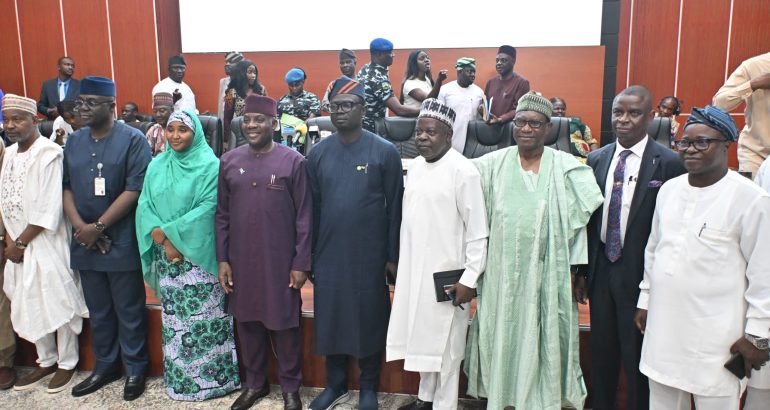
FREQUENTLY ASKED QUESTIONS (FAQs) ON TVET INITIATIVE
GENERAL OVERVIEW
1. What is the TVET Initiative?
The TVET (Technical and Vocational Education and Training) Initiative is a nationwide program led by the Federal Ministry of Education to equip Nigerians with industry-relevant vocational, technical, and digital skills. It aims to reduce youth unemployment, drive entrepreneurship, and build a workforce ready for Nigeria’s economic transformation.
2. What are the key components of the initiative?
- Master 6 (Six-Month Skills Program):
A short-term, 100% practical, intensive training targeted at Nigerian youth across accredited centers nationwide. Includes tuition, stipend and certification
- Master 12 (One-Year Skills Program):
A more advanced, year-long program for deeper technical training and specialization. Includes tuition, stipend and certification
- Technical College Track ( Three-Year Program):
This is the conventional TVET pathway for students at the post-basic level. The first phase covers all Federal Technical Colleges (FTCs) and one Technical College per state. Includes tuition, stipend and certification
- Skills Certification and Standardization:
All learners are assessed under the National Skills Qualification Framework (NSQF) and issued recognized NSQ certificates through NABTEB and Sectoral Awarding Bodies.
- Entrepreneurship and Financing Support:
Access to starter packs/grants, low-interest loans (via Bank of Industry).
3. What is the primary objective of the initiative?
To train and certify a large number of Nigerian youth with employable skills, prepare them for local and global job markets, and reduce reliance on paper qualifications.
PROGRAM STRUCTURE & IMPLEMENTATION
4. How long do the training programs last?
- Master 6 (Skill Training Centers): 6 months
- Master 12 (Vocational Enterprise Institutions): 1 year
- Technical College Track: 3 years
5. Where are the training centres located?
- Across all 36 states and the FCT
- Through accredited public/private training centres
- All Federal Technical Colleges (FTCs) and 1 State Technical College per state
6. What kinds of skills and trades are offered?
25 trade areas are offered, including:
- Painting, Decoration & Finishes (Interior Design)
- Floor Cladding, Tiling & Interlocking
- Brick laying, Blocklaying & Concreting
- Welding & Fabrication
- Electrical Installations
- Network System Installation
- Computer Hardware & GSM Repair & Maintenance
- Social Media Communications
- Creative Media (Digital Media Production)
- Motorcycle & Tricycle Repair
- Vulcanising & Tire Repair
- Auto-body Works (Panel Beating)
- Automobile Mechanic
- Refrigeration & Air-Conditioning
- Plumbing & Pipe-fitting
- Woodwork, Carpentry & Joinery
- Furniture making & Upholstery
- Blacksmithing
- Solar PV Installation & Maintenance
- Automobile CNG Conversion & Maintenance
- Mechanised Agriculture (Mechanics or Operations)
- Livestock Farming (Bee Keeping, Poultry & Animal Husbandry)
- Fashion Design & Garment Making
- Beauty Therapy & Cosmetology
- Hospitality Training
7. Is the training free?
Yes, all programs under the TVET Initiative are free of charge. Trainees will also be eligible for stipends, starter packs/grants, and single-digit loans.
APPLICATION & ELIGIBILITY
8. Who can apply?
- TVET Master 6 (STC): Anyone with a valid NIN
- TVET Master 12 (VEI): Anyone with a valid NIN, All other forms of formal/informal training
- Technical College Track: For junior secondary school graduates seeking formal 3-year technical education or any other individual with basic school leaving certificate or above between the age of 13-20years.
- DTA: Nigerian graduates (minimum OND); beginner pathway is open to all; advanced pathway is for those with a related background
9. How do I register?
- Master 6(STC) & Master 12(VEI): Through the TVET Initiative Portal hosted by the Federal Ministry of Education.
- Federal Technical Colleges: Application is through NABTEB’s National Common Entrance Examination for Technical Colleges.
- State Technical Colleges: Application is managed by the State Ministries of Education in the states.
10. Can applicants choose their preferred trade?
- TVET Trades: Yes, if a training centre offering that trade is available within their locality
11. What is the age range for applicants?
- TVET Master 6: Anyone with a valid NIN
- TVET Master 12: Anyone with a valid NIN, All other forms of formal/informal training
- DTA: Nigerian graduates (minimum OND); beginner pathway is open to all with a valid NIN.
- Technical College Track: 13-20years.
12. Will participants be supported after training?
Yes. Graduates will have access to:
- Starter kits
- Low-interest loans
- Potential job placement via online jobe marketplace
CERTIFICATION & ASSESSMENT
13. What kind of certification will I receive?
- Master 6 (STC) & Master 12 (VEI): NSQ certification issued by NABTEB after assessment by Sectoral Awarding Bodies (SABS)
- Federal & State Technical colleges: NSQ certification issued by NABTEB after assessment by Sectoral Awarding Bodies (SABs) and NTC/NBC Certificates
14. How are learners assessed?
Post-training competency-based assessment conducted by SABs, with NSQ certification issued by NABTEB
15. How are assessments conducted?
Assessments are practical and competency-based, administered by trained assessors. Aptitude tests also guide learner placement at entry.
POST-TRAINING SUPPORT & OPPORTUNITIES
16. Will I get a starter kit or stipend?
Master 6, Master 12, Technical College: Eligible for starter kits/grants and a single-digit loan from BOI
17. What happens after graduation?
Access to starter kits/grants, loans through the Bank of Industry, onboarding on the online job matching platform
INCLUSION, GOVERNANCE & PARTNERSHIPS
18. How is the program ensuring inclusion?
There are provisions to include women, persons with disabilities, and youth in rural areas through quotas, accessible centres, and community outreach.
19. Who is managing the initiative?
The initiative is coordinated by the Federal Ministry of Education, in collaboration with:
- FME
- NELFund
- NBTE
- NABTEB and Sectoral Awarding Bodies (SABs)
- State Ministries of Education for state technical colleges.
20. How is the initiative being funded?
Funding comes from the Federal Government.
21. What role does the private sector play?
- Co-developing curricula
- Hosting training as centres or Mastercraft persons
- Participating in assessments
- Hiring TVET-certified graduates
- Supporting training infrastructure and equipment